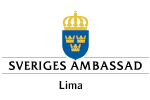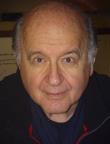For economist Hernando de Soto, property rights are what differentiates the developing world from the developed world. He says that they tend to go astray in countries like his native Peru: because property rights aren’t clear, people can’t take out loans on their assets and can’t exercise their rights over their property like they can in countries like the UK and the US.
I think that in a way health data is in a similar state before now without strong property protections. And I think that this is, perhaps counter-intuitively, inhibiting the sharing, the health data ‘commerce’ that we could be enabling if people had more individual rights. Call it ownership, call it access and control, it’s kind of the same notion – that with more control, we’d actually have more exchange and we’d be able to do a lot more with health data.
What are the dangers if people do not own their medical data/ records in the future if we don’t get the foundations right now?
It’s really a choice between those that have the data knowing more about us and being able to predict our behaviour, our health outcomes and things about us better than we can predict them about ourselves. And I think that’s kind of a scary place for any of us to be – and that’s a world which we might wind up living in if we don’t get things right now.
There’s a great quote from Eric Dishman of the Precision Medicine Initiative: ‘You can’t control your health unless you control your health data.’ I think that’s true - because data is ultimately used to create models and models are used to predict - and we can’t really predict how well we’re going to do or control how well we do, unless we have access to that data.
....
Read the full article on the Health Central website


